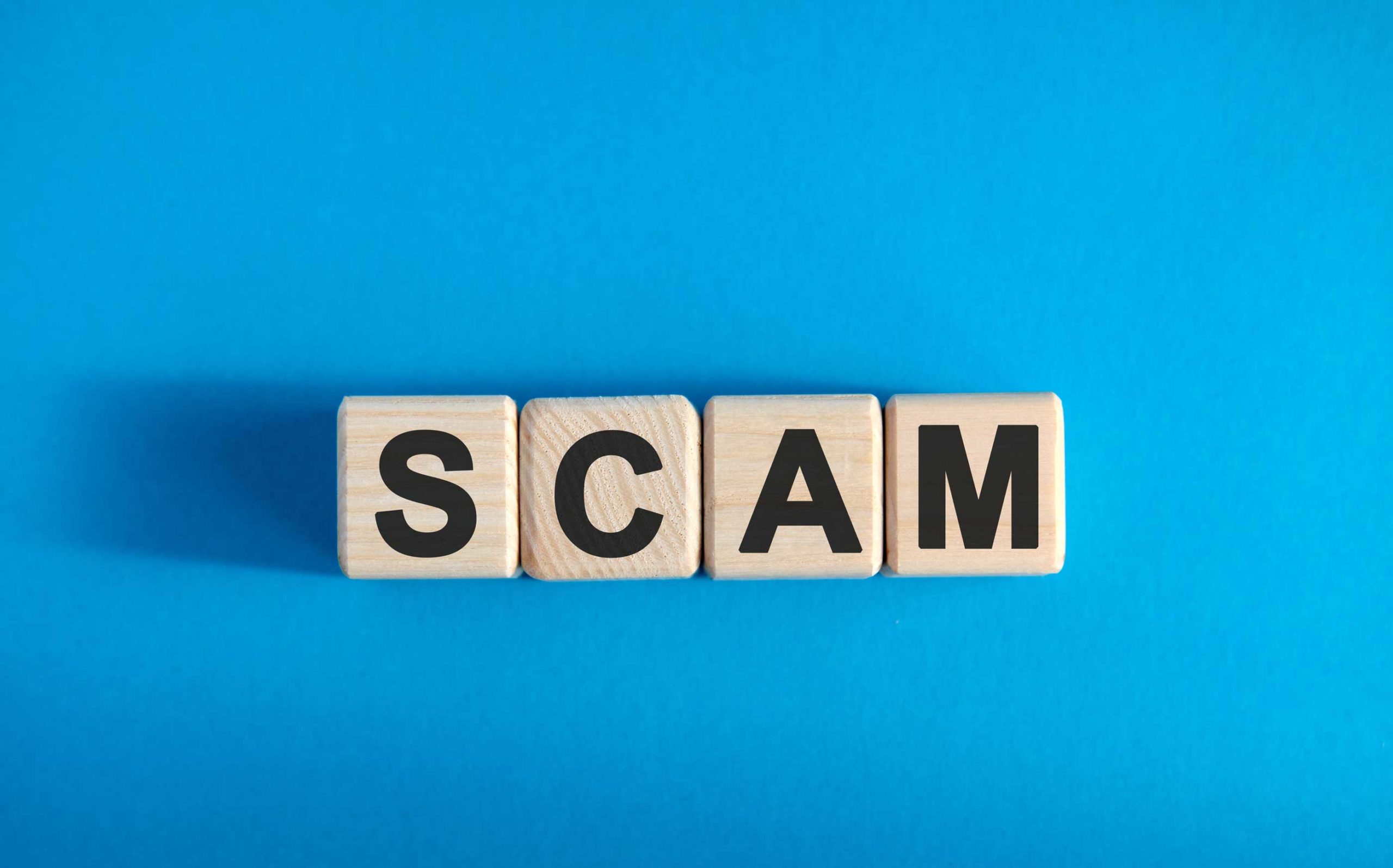

Bite-sized advice: How to avoid ‘snake-oil’ scams
Article written by InvestNow
Who was the first fraudster?
Maybe that snake in the Garden of Eden who sold Eve on the idea of eating the forbidden apple; just one little bite, it’ll be OK.
Good marketing, but bad idea for humanity.
Fraud has always been part of human society – it’s taken on many forms over history, adapting to the technology of the times. Today, scammers have evolved well beyond fake-fruit-selling serpent suits to the modern, sophisticated version of snake-oil sales strategies distributed via the internet.
And NZ investors are increasingly prey to the new breed of fraudsters, according to the Financial Markets Authority (FMA).
Fraud and fortune: 1 Million reasons to be afraid
In November this year, the FMA reported research that found one-in-five Kiwis – or about 1 million people – had been targeted by investment scams.
The regulator also found a worrying rise in the number of identified scams during the COVID-19 era of 2020. From April 1 to November 5 this year, the FMA issued 61 investment scam warnings, up 50 per cent on the same period in 2019.
Furthermore, the composition of the fraud universe changed year-on-year with 34 per cent of the 2020 vintage classed as “impostor scams” compared to 10 per cent last year.
The FMA says ‘imposter scams’ are “where the names and details of legitimate businesses are unlawfully used by scammers to trick investors, such as fake websites or social media accounts.”
Liam Mason, FMA director regulation, said imposter scams appeared to be on the rise during the coronavirus crisis as more people turned to online services, including investing.
Mason said fraudsters, most based overseas, are piggy-backing off the country’s “image as a well-regulated market” by using freely available NZ business information to create plausible, sophisticated scams.
While the regulator tries to weed out the frauds through public warnings, Mason admitted that it can be a fruitless exercise.
“… it’s like cutting the head off a hydra – two more will pop up in its place,” he said.
Due diligence: Dos and don’ts
Recognising scams is not always an easy task, especially when its disguise is too close to the real thing. With that in mind, there are ways to distinguish what is real, and what is not.
“The best solution is for New Zealanders to be inherently sceptical of any investment opportunity that seems too good to be true and to do a bit of background research if there are any red flags,” Mason said.
Not all investment bull comes marked with flaming red flags, but the FMA study found a few obvious signals that should help Kiwis avoid the worst scam traps, including both the kind of product in question and the communication channel used.
For example, the regulator says cryptocurrency offers are now the most common investment scams in NZ, representing almost half of all those uncovered in the survey. Other high-frequency frauds pop up in marketing spiels spruiking investment software packages, seminars and shares.
As well, the FMA study found investors should be particularly cautious with investment offers that come through email (which communicated 41 per cent of scams), social media (26 per cent) and phone (24 per cent).
The survey findings highlight that scammers will exploit every avenue to find victims. Investors armed with some knowledge of fraudulent tactics do stand a better chance of avoiding such pitfalls.
To combat scams in the early stages of engagement, the FMA presents a few simple tips, including:
- don’t use contact details from the website. Find the company’s phone number or email address from an independent source, such as a directory, and contact the business directly;
- check the domain name, which can be done via dnc.org.nz for .nz domain names and ICANN’s WHOIS service for .com domain names; and,
- confirm any claims of licensing or registration in NZ through government websites such as the Financial Services Providers Register, or the Companies Office (including the Disclose financial product database).
But aside from taking these precautions, investors should dig deeper into the kinds of financial products they are considering and how their money will be protected along the way.
InvestNow, for example, only offers regulated financial products, giving investors comfort that they have strong legal recourse in NZ if there are disputes. All InvestNow’s client assets are also held in separate arms-length accounts managed by a reputable third-party custodian.
There will always be snakes trying to charm investors out of their money, but the devil is in the detail; due diligence is the only defence against deadly bites.
Resources:
Buzz Channel and FMA – ‘Investor Confidence Research 2020 – part three’ https://www.fma.govt.nz/assets/Reports/FMA-Consumer-Insights-on-Scams-and-Fraud.pdf
FMA – ‘Rise in scams impersonating NZ businesses during COVID-19′ https://www.fma.govt.nz/news-and-resources/media-releases/rise-in-scams-during-covid-19/
FMA – ‘Scams’ https://www.fma.govt.nz/investors/scams/
Netsafe – ‘Tips to avoid scams’ https://www.netsafe.org.nz/scam-tips/
Bite-sized advice: How to avoid ‘snake-oil’ scams
Article written by InvestNow
Who was the first fraudster?
Maybe that snake in the Garden of Eden who sold Eve on the idea of eating the forbidden apple; just one little bite, it’ll be OK.
Good marketing, but bad idea for humanity.
Fraud has always been part of human society – it’s taken on many forms over history, adapting to the technology of the times. Today, scammers have evolved well beyond fake-fruit-selling serpent suits to the modern, sophisticated version of snake-oil sales strategies distributed via the internet.
And NZ investors are increasingly prey to the new breed of fraudsters, according to the Financial Markets Authority (FMA).
Fraud and fortune: 1 Million reasons to be afraid
In November this year, the FMA reported research that found one-in-five Kiwis – or about 1 million people – had been targeted by investment scams.
The regulator also found a worrying rise in the number of identified scams during the COVID-19 era of 2020. From April 1 to November 5 this year, the FMA issued 61 investment scam warnings, up 50 per cent on the same period in 2019.
Furthermore, the composition of the fraud universe changed year-on-year with 34 per cent of the 2020 vintage classed as “impostor scams” compared to 10 per cent last year.
The FMA says ‘imposter scams’ are “where the names and details of legitimate businesses are unlawfully used by scammers to trick investors, such as fake websites or social media accounts.”
Liam Mason, FMA director regulation, said imposter scams appeared to be on the rise during the coronavirus crisis as more people turned to online services, including investing.
Mason said fraudsters, most based overseas, are piggy-backing off the country’s “image as a well-regulated market” by using freely available NZ business information to create plausible, sophisticated scams.
While the regulator tries to weed out the frauds through public warnings, Mason admitted that it can be a fruitless exercise.
“… it’s like cutting the head off a hydra – two more will pop up in its place,” he said.
Due diligence: Dos and don’ts
Recognising scams is not always an easy task, especially when its disguise is too close to the real thing. With that in mind, there are ways to distinguish what is real, and what is not.
“The best solution is for New Zealanders to be inherently sceptical of any investment opportunity that seems too good to be true and to do a bit of background research if there are any red flags,” Mason said.
Not all investment bull comes marked with flaming red flags, but the FMA study found a few obvious signals that should help Kiwis avoid the worst scam traps, including both the kind of product in question and the communication channel used.
For example, the regulator says cryptocurrency offers are now the most common investment scams in NZ, representing almost half of all those uncovered in the survey. Other high-frequency frauds pop up in marketing spiels spruiking investment software packages, seminars and shares.
As well, the FMA study found investors should be particularly cautious with investment offers that come through email (which communicated 41 per cent of scams), social media (26 per cent) and phone (24 per cent).
The survey findings highlight that scammers will exploit every avenue to find victims. Investors armed with some knowledge of fraudulent tactics do stand a better chance of avoiding such pitfalls.
To combat scams in the early stages of engagement, the FMA presents a few simple tips, including:
- don’t use contact details from the website. Find the company’s phone number or email address from an independent source, such as a directory, and contact the business directly;
- check the domain name, which can be done via dnc.org.nz for .nz domain names and ICANN’s WHOIS service for .com domain names; and,
- confirm any claims of licensing or registration in NZ through government websites such as the Financial Services Providers Register, or the Companies Office (including the Disclose financial product database).
But aside from taking these precautions, investors should dig deeper into the kinds of financial products they are considering and how their money will be protected along the way.
InvestNow, for example, only offers regulated financial products, giving investors comfort that they have strong legal recourse in NZ if there are disputes. All InvestNow’s client assets are also held in separate arms-length accounts managed by a reputable third-party custodian.
There will always be snakes trying to charm investors out of their money, but the devil is in the detail; due diligence is the only defence against deadly bites.
Resources:
Buzz Channel and FMA – ‘Investor Confidence Research 2020 – part three’ https://www.fma.govt.nz/assets/Reports/FMA-Consumer-Insights-on-Scams-and-Fraud.pdf
FMA – ‘Rise in scams impersonating NZ businesses during COVID-19′ https://www.fma.govt.nz/news-and-resources/media-releases/rise-in-scams-during-covid-19/
FMA – ‘Scams’ https://www.fma.govt.nz/investors/scams/
Netsafe – ‘Tips to avoid scams’ https://www.netsafe.org.nz/scam-tips/
